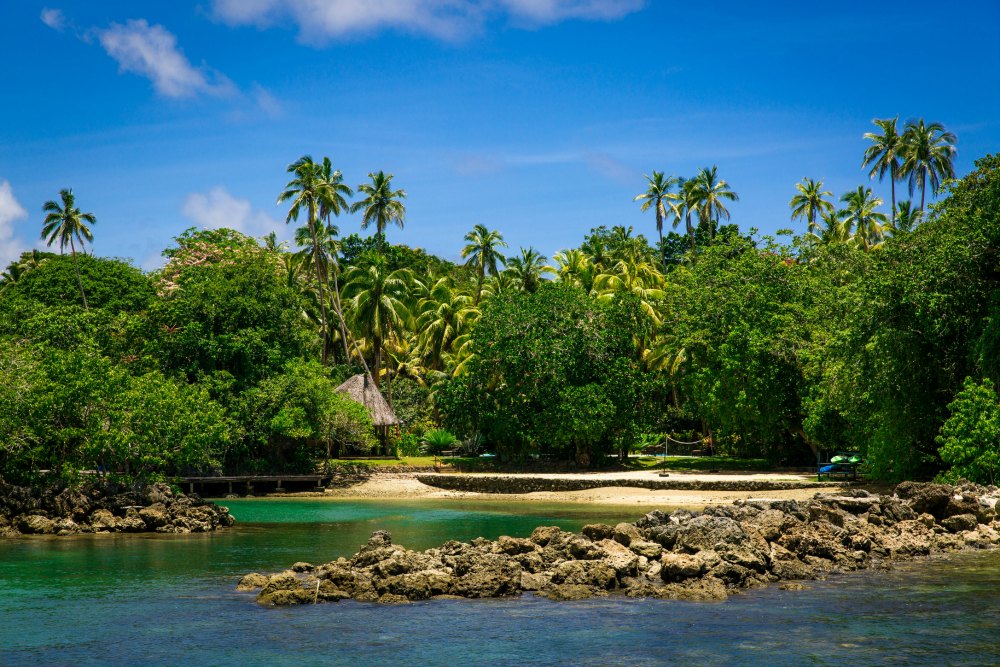Fiji is a country of beauty and tradition, where respect for community and family is held above all else. Here, you’ll find a tropical paradise unlike any other. As you prepare to visit the incredible Fiji Islands, read on to learn a bit more about the culture, traditions, and general goings-on of this beautiful island haven.
Best Time to Visit Fiji
The best time to visit Fiji is up for debate. From May to October, Fiji’s dry season brings mild and pleasant temperatures and lower humidity, perfect for outdoor adventures and beach days. During the wet season, from November through April, temperatures warm up, with tropical rain showers that bring a lush vibrancy to the landscape, especially between January and March. But with the region’s year-round beauty, any time can be the best time to visit Fiji.
Fijian Culture and Language
Fijian culture is warm, welcoming, and deeply rooted in community. Visitors will find the people of Fiji kind-hearted and gracious, with a society centered on family and communal living where everyone shares and supports one another. English is widely spoken, but you may also hear Fijian – the country’s primary language.
One of Fiji’s most special traditions is the kava ceremony, where guests are offered a calming, traditional drink served in a coconut shell as a gesture of respect. When offered a kava cup, respond with “Vinaka” (“Thank you ”) to experience this tradition with warmth and gratitude.
Dining and Cuisine
Local Fijian cuisine is a must-try, featuring fresh seafood, tropical fruits, and staples like breadfruit, taro, and cassava. You can also enjoy Chinese, Indian, and European dishes, often with a Fijian twist. Farmers markets are popular for fresh produce, and fishmongers provide fresh catches for our resort each day. Our five-star service ensures safety to help keep worries like, “Is Fiji safe?” out of mind.
How to Dress for Fiji
During the day, shorts, t-shirts, and swimsuits are perfect for beach outings or exploring. If you’re planning to visit local villages or attend traditional ceremonies, it’s respectful to wear more modest clothing, like covering shoulders and knees. For evenings, a sundress or light shirt and pants will keep you comfortable. Flop flops and sandals are common – removing them when entering spaces like the dining room is common, though not mandatory.
Tips for Traveling in Fiji
Currency & Tipping
Fiji’s currency is the Fijian dollar, called “notes” rather than bills in Fiji. The notes are available in denominations of F$1, F$2, F$5, F$10, F$20, and F$50, and coins come in 1, 2, 5, 10, 20, and 50 cent denominations, as well as F$1 and F$2. It’s recommended that you carry small change for use at the local markets or in taxis to ensure you have exact change.
Tipping isn’t expected in Fiji – it’s simply not part of the culture. In the spirit of community, Guests have the opportunity to contribute to the staff fund, which is evenly distributed and warmly appreciated as a way to honor Fiji’s tradition of shared generosity.
Passports, Visa and Documentation
When planning your trip to Fiji, double-check that your passport will be valid for at least six months beyond your return date.
Electricity, Internet and Communications
Electricity in Fiji runs at 240 volts AC 50Hz, with the standard 3-pin outlets. This is the same voltage as Australia and New Zealand, so those traveling from those countries will find themselves at home. Most leading hotels and resorts offer universal outlets for 240v or 110v appliances and adapters.
While Fiji doesn’t use area codes, its international country code is 679, and you can dial out internationally with the code 05, followed by the country code and number. Mobile phones generally work as long as roaming is enabled, though reception can be spotty in some areas. Internet speed may be slower than you’re used to, but Namale Resort & Spa provides Wi-Fi throughout the property. Please keep in mind that international calling charges may apply.
Now that you know how to go to Fiji, book your vacation package now!


